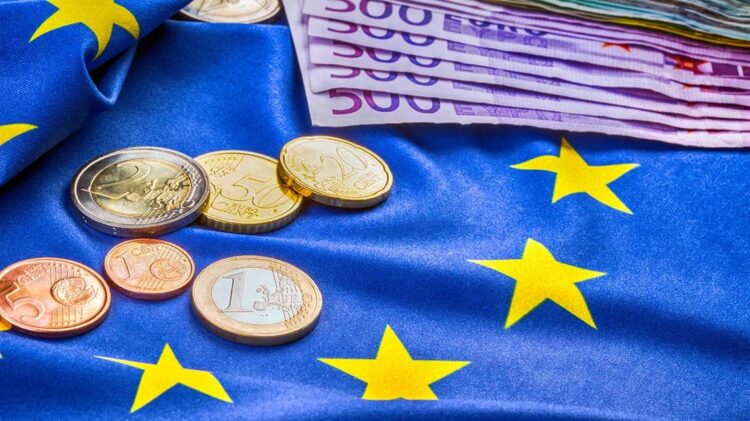In order to mitigate the negative economic and social impacts of the pandemic on European economies, the European Union (EU) created an instrument called Next Generation US, the largest stimulus package launched in Europe, which will total more than €750 billion, at 2018 prices.
The objectives of this program will be to boost the economy in the short term, so that it can resume a level of activity close to that seen before the pandemic and improve productivity and growth potential in the medium and long term.
The program for applying these funds in Portugal is called the Recovery and Resilience Plan (PRR), will have an implementation period until 2026, approximately 16,6 billion Euros of funding (84% non-refundable) and aims to promote the recovery economy, through the creation of (i) a greener, (ii) digital economy and (iii) resilient to future crises.
It is in this context that the strategy for implementing the PRR in the Algarve should be considered, perhaps the region of the country most severely affected by the recent crisis.
There are already some projects outlined, such as water desalination and rehabilitation of supply networks, integrated in the Algarve Regional Water Efficiency Plan, to which 200 million Euros will be allocated; recovery of cultural heritage, such as the Fortress of Sagres or Ruínas de Milreu, among others, with an allocation of 1,2 million Euros (only 0,8% of the national total) and, in terms of roads, the execution of the bypass to Olhão.
In my view, this unique opportunity and available resources cannot be wasted, it is imperative to bet on the following vectors, which I consider urgent:
>>water resources: in a region with less and less water available and with growing needs for this resource, measures must be reinforced to allow the use of treated wastewater; optimize the storage capacity of dams; improvement of degraded distribution networks; desalination, important as a complementary measure. By implementing measures like these, it will be possible to manage this increasingly scarce resource more efficiently.
>>renewable energies: in this context, the PRR will mainly focus on hydrogen and renewable gases. However, the Algarve presents particularly favorable conditions for investing in renewable energies such as wind, hydro and solar, which will not be foreseen in the plan.
This solution would make it possible to have a more “green” and diversified economy, accelerate decarbonization, reduce fossil energy consumption and energy imports.
>>sustainable mobility: one of the region's chronic shortcomings is the lack of a functional and efficient public transport network.
Investment should be made in the revitalization of the railway, through the improvement of infrastructure, renovation of equipment and greater frequency of timetables.
Connecting this theme with the fight against climate change and a “green economy”, the main cities and connection between them could be provided with more ecological public transport (road and rail), which would allow the reduction of the use of private cars (many used with only 1 passenger), which is practically an imposition in the region and which financially burdens its inhabitants and imposes environmental costs.
These negative externalities could be mitigated with the improvement and modernization of public transport, more efficient in energy consumption and in the emission of polluting gases.
>>professional training: with the Algarve having a seasonal economy that is heavily dependent on tourism, accentuated by the current pandemic situation, it is necessary to increase resilience in employment, with a focus on “qualifications and skills”.
These must be better adjusted to the needs of the regional economy, but also allow workers to acquire skills that allow them to work in different economic activities, reflected in the provision of vocational training.
>>economy of the sea: the so-called “blue economy” is extremely important in the region. Apparently, no concrete measures in this area are foreseen in the PRR for the Algarve.
The integrated management of the natural resources of the sea, contemplating their exploitation but also their preservation, could generate an interesting dynamic between sustainability and profitability, namely with the fishing, canning, shellfish and tourist industries.
Investment could be made in the energy efficiency of fishing vessels and manufacturing units, strengthening the training of people in this area (shipbuilding, fishermen), revitalization of fishing activity and strengthening of research, just to mention a few examples.
The various areas that I refer to as preponderant, if connected to each other and adopted holistically, can contribute not only to the region's short-term economic recovery, but also to its long-term improvement, whether economically, environmentally or socially.
Betting on the binomial economic recovery/sustainability, with practical effects on the economy of the Algarve, several objectives can be achieved simultaneously and a higher economic impact.
Using regional or national productive factors, this impact will be even greater, through a multiplier effect in the region/country, which will generate an increase in income, employment, wages, taxes, among others.
Author Hugo S. Gonçalves has a degree in Economics and a Masters in Tourism Economics and Regional Development from the Faculty of Economics of the University of Algarve.
Co-author of articles on economic impacts of tourism, published in scientific journals tourism management e Tourism Economics.
Effective member of the Order of Economists, of the Specialty College of Political Economy.
He has been working in banking for over a decade, in various areas, in recent years with a particular focus on liquidity risk.
Note: article published under the protocol between the Sul Informação and the Algarve Delegation of the Order of Economists




















Comments